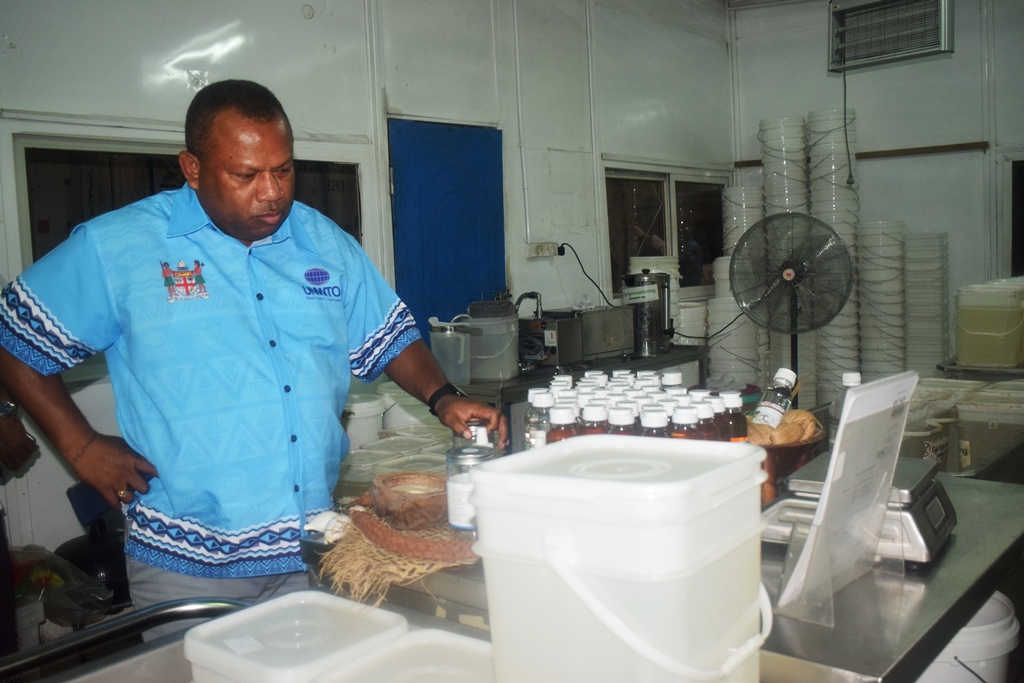PREVIOUS development efforts in agriculture have led to major improvements in production and productivity.
However, Fiji’s Agriculture Minister said this progress had often been accompanied by social and environmental costs that weakened the positive impacts and threatened sustainability.
Speaking at the Symposium on Sustainable Agriculture and Community Resiliency, Mr Seruiratu highlighted that future improvements in agriculture would continue to rely on enhanced productivity.
But he stressed that greater emphasis would need to be placed on the social and environmental dimensions of sustainability.
“For social dimension, greater understanding of Sustainable Agriculture is required especially on the need to pay particular attention to the critical roles played by women, youth, smallholder farmers, pastoralists and forest users,” he said.
“Sustainable agriculture has considerable potential for employment creation in rural areas, specifically for young women and men who will further contribute to a more sustainable economy.
“It is also vital to engage these important social actors in the design and implementation of policies, programs and investments to promote the adoption of innovative and new practices.”
Mr Seruiratu said these practices needed to be empowered as critical agents of change through smart incentives and sustained dialogue.
“For environmental dimension, research and innovation provides technical ingredients for change and better understanding of how ecosystem works,” Mr Seruiratu said.
“It assists in finding a good balance between the need for food production and the preservation of the ecological system within the environment.
“It focuses on improving soil health and enhancing carbon sequestration, more efficient use of water and energy, efficient food supply chains, the reduction of food loss and waste, the conservation of biodiversity and climate regulation.”
Mr Seruiratu also indicated that effective transition towards sustainable development requires a common understanding and better dialogue within and across sectors.
“It also entails involving all stakeholders, including the private sector, civil society, academia and research institutions, and developing partnerships at different levels,” he said.
“Shared goals and principles are a powerful entry point for discussion amongst different stakeholders.”
He also cited five elements as a basis for dialogue and governance arrangements needed for sustainable agriculture development:
(1) improving efficiency in the use of resources – includes improved genetic material, improved agricultural technologies and practices, integrated management of pests and soil fertility, precision irrigation, improved animal feeding and health control, reduced loss and waste.
(2) conserving, protecting and enhancing natural ecosystems. – includes practices for the conservation of plant and animal genetic resources, restoration and conservation of soils, protection against water pollution, reduced carbon emission intensity, and incentives for environmental services, such as the protection of pollinators and carbon sequestration.
(3) protecting and improving rural livelihoods, equity and social well-being of rural people, in particular small-scale family farmers, youth and women; to have secure and equitable access to knowledge, services, markets and resources, including land and water, control over their livelihood through decent work opportunities, and access to diverse and nutritious food.
(4) enhancing the resilience of people, communities and ecosystems which includes contingency planning for droughts, floods or pest outbreaks and the adoption of more diversified and resilient production systems, associated with effective safety nets.
(5) promoting responsible and effective governance mechanisms across natural and human systems. This includes effective policies and strategies that are consistent across sectors, alignment of legal frameworks and investments, and strengthening of capacities of public institutions and other relevant stakeholders at all levels. It is based on broad stakeholder consultation, strengthening partnerships, and the application of mediation and conflict resolution mechanisms that are needed to build consensus around sustainable development objectives.
The symposium provided a forum to discuss and enhance sustainable agriculture for resilience, livelihoods, food and nutritional security for the eight communities.
The discussions are aimed at assisting the agriculture ministry us in finding grounded solutions to issues that are faced with and to develop strategies for creating resilient communities in Fiji.
The symposium was organised by FRIENDS Fiji and its partner, the US Embassy in Suva (USAID).






